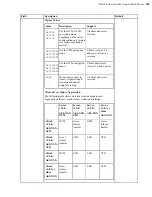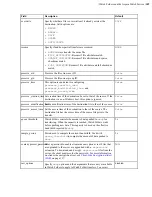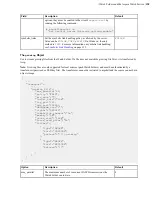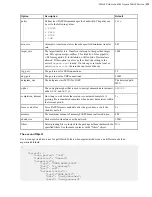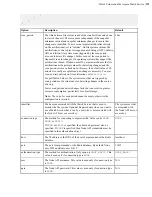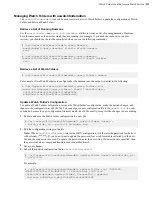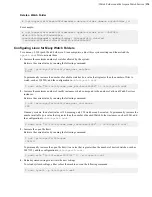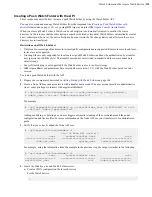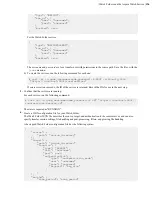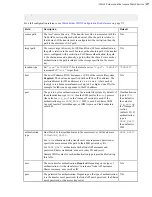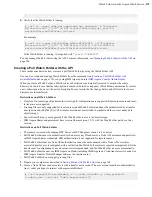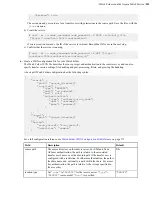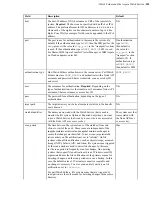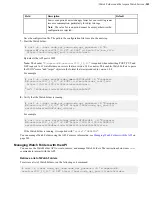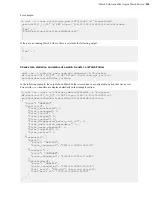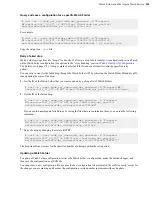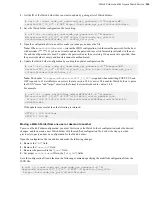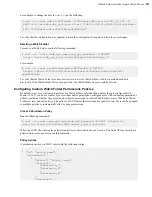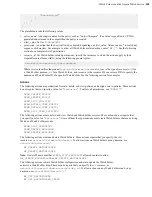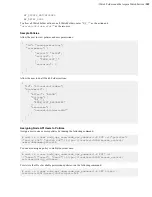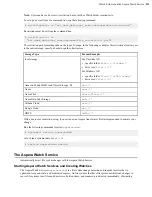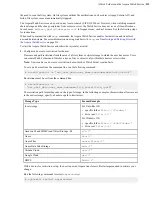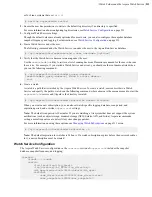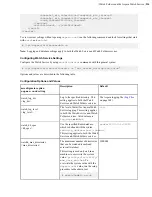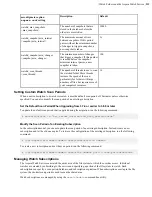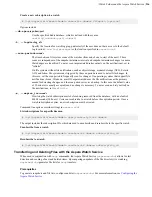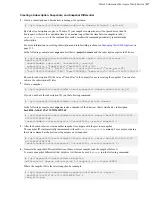
| Watch Folders and the Aspera Watch Service |
202
Field
Description
Default
host
The host IP address, DNS, hostname, or URL of the remote file
system.
Required
. The host can be specified with an IPv4 or IPv6
address. The preferred format for IPv6 addresses is x:x:x:x:x:x:x:x,
where each of the eight x is a hexadecimal number of up to 4 hex
digits. Zone IDs (for example, %eth0) can be appended to the IPv6
address.
N/A
port
The port to use for authentication to the remote file system. By
default, if the authentication type is
SSH
, then the SSH port for the
ascp
process (the value for
tcp_port
in the "transport" section)
is used. If the authentication type is
NODE_BASIC
, 9092 is used.
For Shares, IBM Aspera Transfer Cluster Manager, or IBM Aspera
on Cloud endpoints, enter 443.
If authentication
type is
SSH
,
then default is
the value for
tcp_port
in the
"transport" section
(default: 22). If
authentication type
is
NODE_BASIC
,
then default is 9092.
authentication type
How Watch Folders authenticates to the remote server. Pull Watch
Folders must use
NODE_BASIC
and authenticate with a Node API
username and password, Shares credentials, or an access key ID
and secret.
NODE_BASIC
user
The username for authentication.
Required
. Depending on the
type of authentication, it is the transfer user's username, Node API
username, Shares username, or access key ID.
N/A
pass
The password for authentication, depending on the type of
authentication.
N/A
target path
The target directory on the local computer, relative to the transfer
user's docroot.
N/A
watchd identifier
The daemon associated with the Watch Service that is used to
monitor the file system. Optional. Required only when you want
to use a Watch Service that is run by a user who is not associated
with the Node API user or access key.
The system user that
is associated with
the Node API user
or access key.
scan_period
The time between file system scans of the watches (from end
of one to start of the next). These scans are independent of the
snapshot minimum interval and snapshot minimum changes to
ensure that changes are identified. To never scan (asperawatchd
relies entirely on file notifications), set to "infinite". On file
systems without file notifications, such as object storage, mounted
storage (NFS), Solaris, AIX, and Isilon, file system scans triggered
by the scan period are used to detect file changes. In this case,
set the scan period to frequently scan for changes. On operating
systems that support file notifications (Linux, Windows, macOS),
asperawatchd uses the file notifications as the primary means for
detecting changes, and the scan period serves as a backup. In this
case, the default value of 30 minutes is usually acceptable and
no change is necessary. To never scan, and rely entirely on file
notifications, set to
infinite
.
For pull Watch Folders, file systems scans that are triggered by
scan_period are the sole means for detecting changes in the source
directory.
30m

